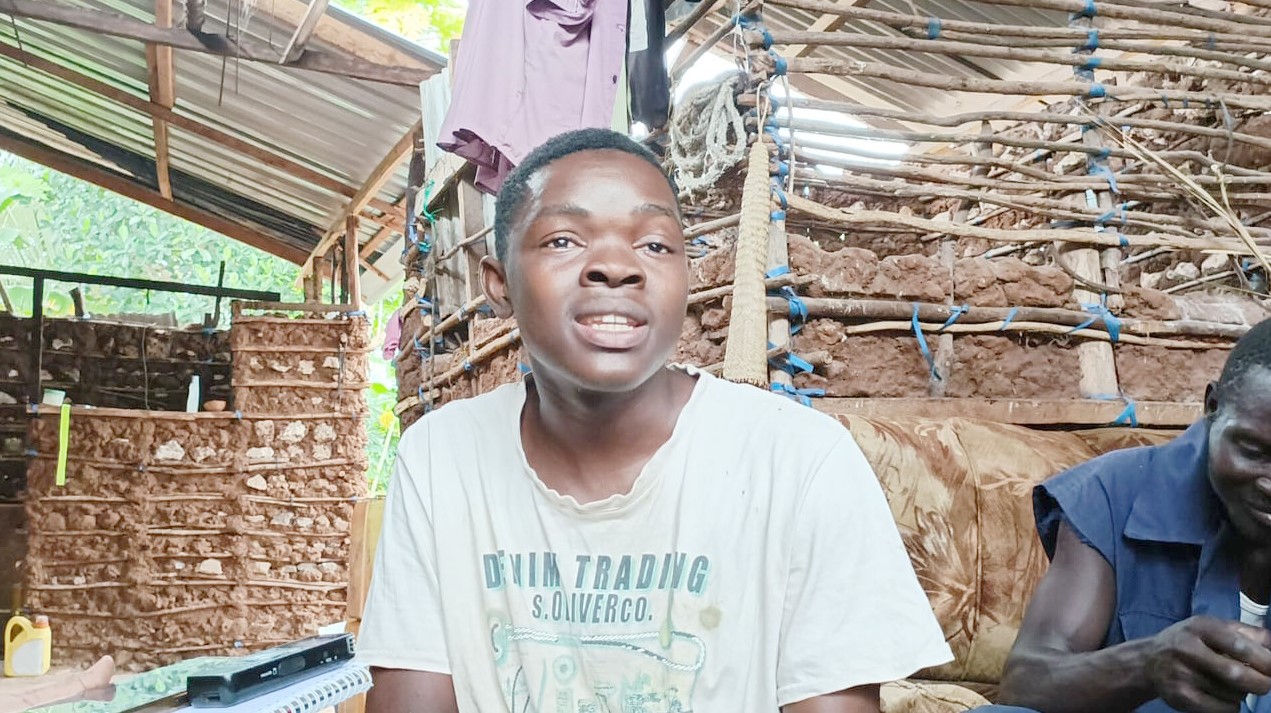New funding model for higher education offers hope to students from needy homes

Students from the vulnerable and extremely needy households will receive 100 per cent funding, while the needy and less needy will get a 93 per cent scholarship.
For many students from needy backgrounds, accessing quality higher education has long been a daunting challenge, often leading to premature termination of their academic dreams due to financial constraints.
However, a new funding model announced by the government is now giving hope to these students.
More To Read
- Universities Fund faces Sh9.6 billion deficit as pending bills soar to Sh72.2 billion
- Government to revise controversial university funding model, says CS Ogamba
- High Court suspends implementation of university funding model
- CS Ogamba: No varsity student will be barred from exams over unpaid fees
- Ruto's education scorecard plagued by setbacks two years on
- State sets up committees to review varsity funding model as student leaders call off strike
Elijah Baraka, a 19-year-old student from Kaembeni village in Ganze, Kilifi County, was almost giving up on his dream of studying medicine at Egerton University due to financial limitations.
When The Eastleigh Voice visited him, he was sitting outside the family’s mud-walled house which is thatched with palm tree leaves, an indication of their struggles. From a distance, one could tell he was deep in thought.
Baraka sat his Kenya Certificate of Secondary Education (KCSE) exams at Mekatilili Memorial Secondary School and scored a mean grade of A-. But even with the good performance, his family could not raise the Sh 490,000 required for him to join university.
But what was intriguing was the revelation that it was not the first time that Baraka sat the KCSE exam and got good grades.
Narrating his story, Baraka said he first took the KCSE exam in 2022 and scored a B+.
" The grade did not allow me to pursue my course of choice, thus I decided to go back to school and aim for a higher grade. I had my mind set on medicine because I believe I will get my family out of poverty once I graduate,” he stated.
Baraka was thrilled when he received his university admission letter, but his heart sank when he saw the fee he was required to pay.
"My family is unable to afford such a large amount,” Baraka said.
Having been mainly supported by his teachers when in high school, he had hoped for a breakthrough that could sustain his academic journey later.
Baraka's father, Justin Hare, expressed his frustration, saying he had tried everything possible to help his son pursue education, including attempting to sell a piece of land.
“But the offers I received were too low to make any difference,” Hare said.
Suheil Mkalla Mumba, from Waa Location in Kwale County, faced a similar plight.
After scoring an A- in his KCSE exam at Kwale High School, Mumba's family struggled to manage the costs associated with his higher education.
He confessed to having had suicidal thoughts as the days to join university approached.
"My goal is to save my family from poverty. I do not see the need to live if I cannot achieve that," he said.
His father, Rashid Mumba, who works as a casual labourer, is also at a loss on what to do to help his son pursue university education.
“I have tried reaching out to county officials and our MP for assistance but the support has been insufficient and the clock is ticking as the reporting date approaches,” Mumba said, expressing concern over his son's future.
However, the situation for the two students took a turn for the better with the recent announcement by President William Ruto of a new higher education funding model.
The president revealed there would be a Sh10 billion fund designed to support students based on their financial circumstances.
Under this new model, students from low-income backgrounds will benefit from up to 100 per cent scholarships, significantly reducing the financial burden on their families.
The model divides students seeking funds into four categories: the vulnerable, the extremely needy, the needy, and the less needy.
Students from the vulnerable and extremely needy households will receive 100 per cent funding, while the needy and less needy will get a 93 per cent scholarship.
President Ruto had assured the public of the government's commitment to ensuring that every deserving student has the opportunity to pursue their dreams without being hindered by financial constraints.
Last month, the Ministry of Education quashed the fees that students set to join universities in September were initially expected to pay.
Higher Education and Research Principal Secretary Beatrice Inyangala said a new fee structure would be communicated to parents this month.
“The Ministry of Education wishes to inform the public, particularly parents/guardians of students, and students that the fees to be paid by students and their families/guardians as relates to the full cost of each degree programme as previously communicated in the admission letters is hereby nullified, and, does not apply anymore,” stated the PS.
The new funding model is a silver lining for students like Baraka and Mumba who have long struggled with the financial barriers to higher education.
Top Stories Today











































